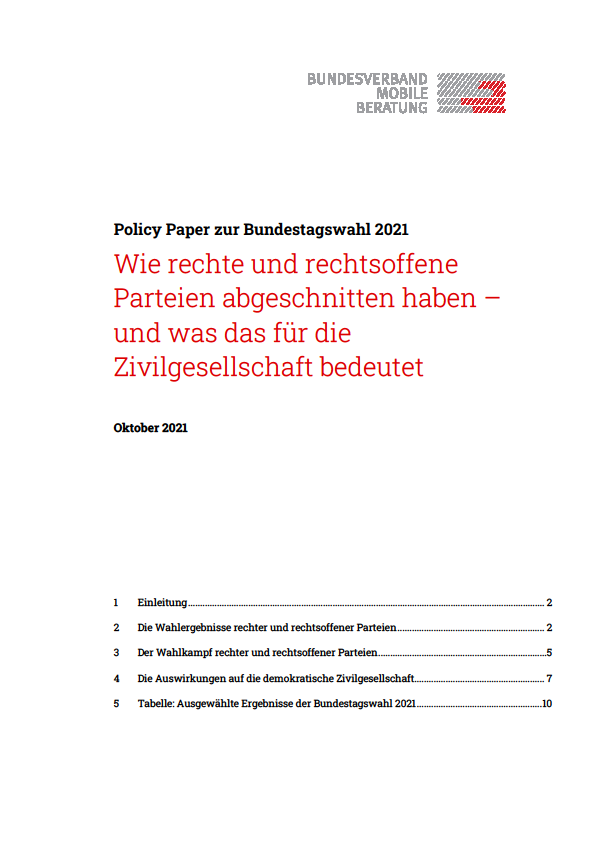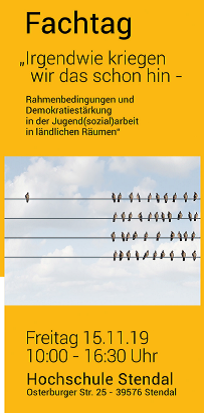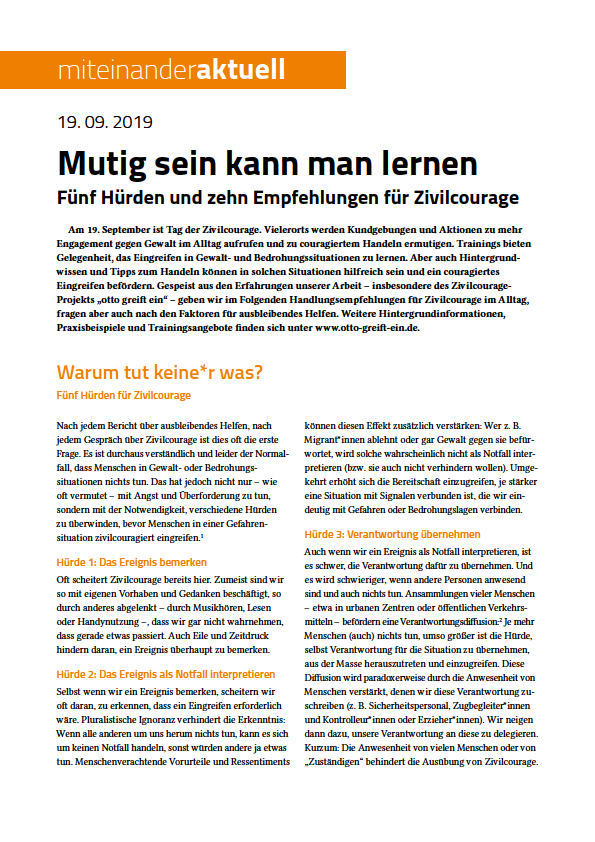Pressemitteilung unseres Bundesverband Mobile Beratung
Rechte und rechtsoffene Parteien mussten bei der Bundestagswahl Verluste einfahren. Grund zur Entwarnung ist das jedoch nicht, schreibt der Bundesverband Mobile Beratung (BMB) in einem neuen Policy Paper. Im Gegenteil: Die demokratische Zivilgesellschaft wird auch in den nächsten vier Jahren stark gefordert sein.
Das Papier beruht auf den Analysen von Mobilen Beratungsteams gegen Rechtsextremismus in allen 16 Bundesländern. Sie zeigen: Die AfD kann vielerorts auf ein stabiles Stammwähler*innen-Potenzial zurückgreifen – nicht nur im Osten. Sie wird ihren Funktionärsapparat ausbauen und sich weiter professionalisieren können. Und sie könnte Gelder aus dem Bundeshaushalt erhalten, um die ihr nahestehende „Desiderius-Erasmus-Stiftung“ zu finanzieren – voraussichtlich in Millionenhöhe.
Für die demokratische Zivilgesellschaft bedeutet das vor allem eins: vier weitere Jahre Druck von rechts, vier weitere Jahre Anfeindungen und parlamentarische Anfragen. „Verglichen zu 2017 sind die Engagierten zwar routinierter im Umgang mit der AfD“, sagt Heiko Klare, Sprecher des BMB. „Aber es gibt weiterhin große Unsicherheiten. Das spüren wir in unserer täglichen Arbeit: Der Beratungsbedarf ist hoch und dürfte weiter steigen, gerade auch zum Umgang mit Verschwörungsmythen.“
Um diesem Bedarf gerecht werden zu können, brauchen die Mobilen Beratungsteams finanzielle Sicherheit. Die nächste Bundesregierung muss daher schnellstmöglich ein Demokratiefördergesetz auf den Weg bringen, fordert der Bundesverband. Im täglichen Umgang mit rechten Diskursen sind aber alle gefragt: „Vor allem Menschen in Schlüsselpositionen – egal ob Politiker*innen oder Vorgesetzte – müssen sich gegen rechte Anfeindungen positionieren“, so Klare. „Das stärkt Betroffenen den Rücken und unterstützt all diejenigen, die wir vor Ort beraten und die sich tagtäglich für die Demokratie einsetzen.“




